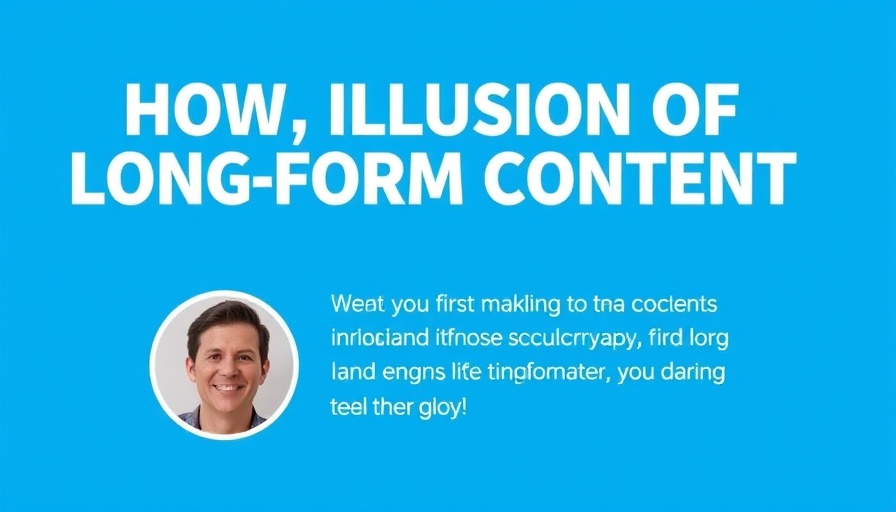
Understanding the Long-Form Content Misconception
For years, the digital marketing world has been captivated by the notion that longer content translates to better search engine performance. But is that truly the case? In essence, many marketers operate under the assumption that the word count of their articles directly correlates with success. However, this belief may be a misconception, stemming from a broader misconception about what truly influences search engine rankings.
Why Length Isn’t Everything
Long-form content undoubtedly feels like a safe strategy. It's quantifiable and repeatable—something marketers can latch onto for tangible goals. Yet, this approach often lacks an essential component: understanding the audience. An authoritative article doesn’t thrive solely because of its length; rather, it succeeds when it presents valuable, targeted information that addresses the specific needs, questions, and concerns of readers.
Editing: The Forgotten Art
As content creators, we may find it far easier to amplify our word count than to edit meticulously. The truth is, longer articles can sometimes dilute important messages. Editing demands a high level of skill and confidence to discern what is essential versus what merely fills space. When examining articles with excessive lengths filled with superfluous details, one wonders if the real goal is clarity or merely to get to a higher word count.
Correlation vs. Causation: What Really Ranks?
While it’s a common sight to see long articles dominating search results, it’s crucial to consider whether their success is due to their length or other factors, such as quality and backlinks. Finding a correlation between length and ranking doesn’t necessarily prove that longer pieces are better; instead, they might just be a byproduct of other effective writing practices that more aptly meet user intent.
Quality Over Quantity: Introducing Value
Ultimately, the backbone of effective online content is quality. A concise, focused article that directly answers a reader's question will likely outperform a lengthy piece that meanders through too many tangents. Incorporating the best practices of user-focused content creation—like keyword usage, content clarity, and engagement—is vital in crafting articles that resonate and rank well.
Mindful Content Creation: A Different Approach
This calls for a paradigm shift. Instead of relying on word counts as a marker of success, marketers large and small need to invest time in understanding their audience. Content that prioritizes utility—starting with quality and relevance before length—fosters engagement and builds trust with readers. As a result, marketers will not only write better but also more purposeful content that stands out in the crowded digital space.
In a dynamic and evolving landscape, staying aware of the true drivers of content success—insightful, high-quality writing tailored to real audience needs—will not only improve engagement but also effectively enhance SEO performance.
 Add Row
Add Row  Add
Add 

 Add Row
Add Row  Add Element
Add Element 




Write A Comment